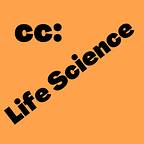Designing new compounds to be used as therapeutics is a challenge regardless of the approach. Artificial intelligence shows promise for solving some of those challenges, whether it’s identifying a hit, lead optimization or something else.
Ashwini Ghogare is the intrapreneur CEO of Artificial Intelligence and Automation in Drug Discovery at Millipore Sigma. She was kind enough (and patient enough) to educate me on how AI can be used to help with figuring out the synthesis of new compounds and even predicting ADME or physical chemical properties.
When I look at complex molecules, I’m overwhelmed just imagining how they are synthesized, given that some groups may be cross-reactive etc. How do ensure that you get (mostly) what you intend to make? I learned a little bit about the possibilities in this conversation, for example, synthesizing component groups as opposed to a linear process from start to finish. (The only real synthesis I’ve ever done was a 13-base oligonucleotide -in a fume hood!- long before that were done by machine.)
In the early stages, you just want to see if a molecule can be made and will it do what you want. Someone else gets the job of figuring out how to make it efficiently at scale.
If you like this content, you probably know someone else who will also.
Thanks.
Back to predicting ADME properties: Making drugs is expensive. Most will fail. But if we knew in advance a little more about the ADME properties we might expect, we might at least reduce the cost of development a bit.
The big challenge here is that, compared to finance or my YouTube habits, the amount of data available for training models is limited to none. The publicly available data is all from published studies. But to train a model well, it would be really valuable to have negative data in the training set.
Merch KGAa are leading the way for their peers in the industry to take advantage of sharing datasets for training without actually sharing or compromising the actual underlying data.
Data can be negative or drugs can fail for many reasons. Ashwini points out that one step in the right direction to address this is automation, removing at least some sources of error. When I asked her what the future of drug development looks like I was blown away by her answer. She envisions a world where compounds are not just synthesized by automation, but where those machines are autonomous! The machines analyze the data from the synthesized compounds and iterate independently from there.
I’m essentially going to school on this podcast. If you are learning also or know someone else who would benefit, please subscribe and share.











